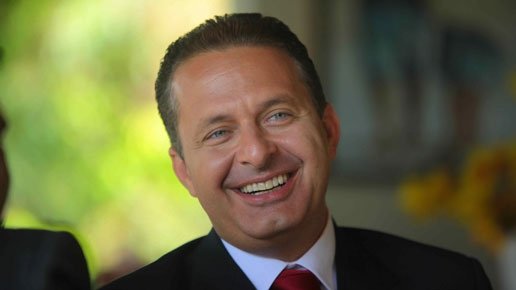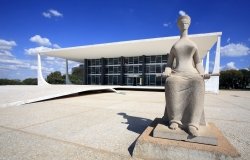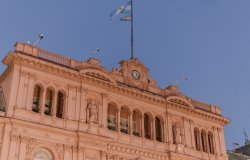The Brazil Institute mourns the death of Governor Eduardo Campos
The Wilson Center’s Brazil Institute mourns the untimely passing of Eduardo Campos, former governor of the state of Pernambuco and candidate of the Brazilian Socialist Party in Brazil’s October presidential elections.

The Wilson Center’s Brazil Institute mourns the untimely passing of Eduardo Campos, former governor of the state of Pernambuco and candidate of the Brazilian Socialist Party in Brazil’s October presidential elections. The 49 year old Campos died tragically this morning when the executive jet carrying him and a few advisers crashed in bad weather in the port city of Santos, state of São Paulo. He is survived by his wife Renata and five children.
A promising politician of the first generation of Brazilian leaders to emerge after the reinstatement of democracy in 1985, Campos was a federal congressman and minister of Science and Technology during the first government of President Luiz Inácio Lula da Silva before successfully running for governor of his home state, in Brazil’s Northeastern region. He was the grandson of Miguel Arraes de Alencar, a founder of the Socialist party and twice governor of Pernambuco. Campos rose to national prominence in 2010, when he was reelected governor with a record 82 percent of votes. In September of last year, Campos’ party withdrew from the coalition led by President Dilma Rousseff.
An economist, Campos was a refreshing, post-ideological figure in Brazil’s left. He combined the talent of a charismatic political boss typical of his region and the skills of a modern manager. During his administration, Pernambuco’s economy grew two to three percentage points ahead of the national GDP and he became a favorite of Brazilian and foreign investors. Speaking at the Wilson Center in January of 2012, he displayed his political skills by recognizing the merits that both allies and adversaries had in the country’s political, social and economic progress. “The past twenty years have been a very interesting time of transformation in Brazil, when we gained economic stability and consolidated our democracy,” he said, crediting both former presidents Fernando Henrique Cardoso and Luiz Inácio Lula da Silva for the role they played.
In a move that is likely to alter the outlook of the presidential race, Campos’ running mate, former senator Marina Silva, is expected to replace him as head of the ticket. A renowned national and international figure, Marina received 20 percent of the votes in the first round of the 2010 presidential election, when she ran for the Green Party.
Related Program

Brazil Institute
The Brazil Institute—the only country-specific policy institution focused on Brazil in Washington—works to foster understanding of Brazil’s complex reality and to support more consequential relations between Brazilian and US institutions in all sectors. The Brazil Institute plays this role by producing independent research and programs that bridge the gap between scholarship and policy, and by serving as a crossroads for leading policymakers, scholars and private sector representatives who are committed to addressing Brazil’s challenges and opportunities. Read more










